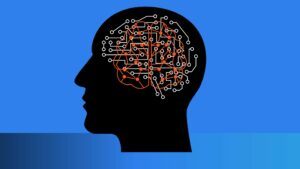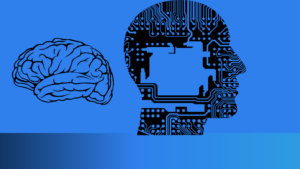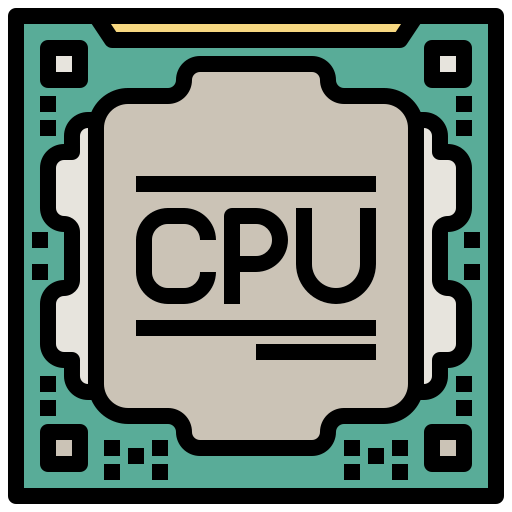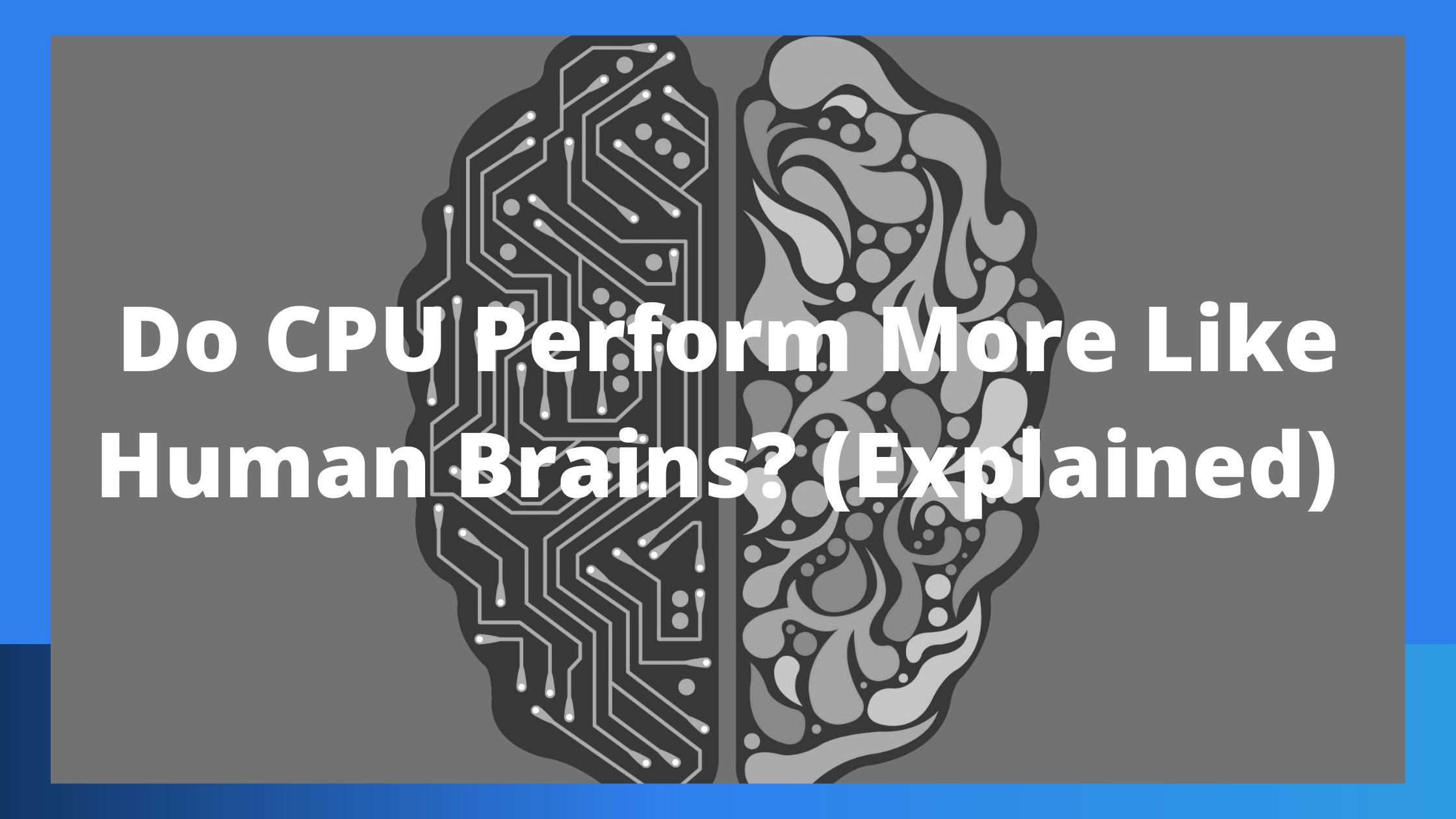Computers can now beat people at games like chess, go, and even jeopardy.
We are constantly seeing advancements in AI and ML, which makes us question if we will soon be living in a technological utopia or competing for survival with a cyborg Arnold Schwarzenegger.
But the question keeps asking is “Do CPU Or GPU perform More like human brains? Can machine generally perform better than the human brain? Let’s find out in this guide.
First of though, let’s define a computer as a desktop used for non-commercial purposes for the remainder of this discussion.
We’ll confine the comparison to just four categories to make things straightforward.
- Storage
- Processing velocity
- Memory
- Energy Conservation
Storage
Most computer users can get by with 500GB of storage for daily use. The majority of the time, data-intensive users like artists, gamers, and others will rely on cloud storage or a portable SSD.
We’ll assume for argument that the computer has a storage capacity of 1TB on average.
What about the memory of the brain? Well, it is difficult.
The number of neurons, or nerve cells, in a typical brain varies in estimates. Many studies use the figure of 100 billion neurons, while a study from Stanford University calculates that there are 200 billion neurons in the brain.
You might be questioning how we can compare the brain to a computer when the latter has neurons as opposed to bytes.
The ability of neurons to work together to aid in the generation and preservation of memories is one significant distinction between the human brain and computer flash memory.
An average of a thousand connections exist between each neuron. A typical human brain has over a trillion connections, hence the overlap effect results in an exponentially increased store capacity.
We would calculate the brain’s storage capacity at 1 petabyte, which is more than a thousand 1TB SSDs, based on our current, very limited understanding of neurons.

Memory
The competition is even so far. The ordinary computer lacks the storage capacity of the human brain. Additionally, a computer can digest information far more quickly than the human brain.
Consider using memory access. Can people remember knowledge more effectively than computers?
Well, that depends on the types of information we’re discussing.
The simple fact is that the answer is a categorical no. A computer will always be able to retrieve the information first like (Nairobi City is the capital of Kenya).
A human, on the other hand, might over time become perplexed or forget that, especially after a long weekend in Paris.
When it comes to giving information qualitative rankings, computers fall short of humans.
Information is information for a computer.
Humans, on the other hand, have a wide variety of memories and rank memories according to their significance.
On your wedding day, you will surely recall a great deal of information, but you probably won’t recall what you ate for lunch on Tuesday.
Humans are also good at connecting memories, so your recollection of New Year’s Eve will be connected to all of your past New Year’s celebrations throughout your life.
At least for the time being, a computer cannot do this.
Energy Savings
The competition is still close. Humans have more storage and subtle memory access, whereas computers are quicker and more accurate.
Where does energy efficiency fit in? Here is when the fun starts.
On average, a computer uses 100 watts of power. On the other hand, the average human brain uses roughly 10 watts. That’s true, a computer uses ten times as much energy as your brain. A light bulb consumes more energy than the brain.
We might not be the most brilliant lights in the box, but we also don’t have to be.
Brains and computers function quite differently.
In contrast to the human brain, which is a disorganized, seemingly random mess of neurons that behave unpredictably, computers are meticulously built machines based on logic, reproducibility, predictability, and mathematics.
Life is a lovely thing, and it is far more intelligent than computers. The brain is therefore both physical and digital.
The same interconnected areas can simultaneously perceive, interpret, store, analyze, and distribute information thanks to their billions of neurons and possibly trillions of glial cells that connect them.
Computers are incredibly efficient because they are divided into sections for processing and others for memory by their fundamental definition and basic design, which is different from how the brain works.
A few hundred neuron transmissions can perform the same calculations and processes that a computer might perform in a few million steps, which uses much less energy and is much more effective.

The energy needed to calculate by the fastest supercomputer in the world would be enough to power a building; the human brain would achieve the same processing speed from the same energy needed to charge a dimming light bulb.
Biological processes have evolved into perfect, effective organs that greatly surpass technology over billions of years, and we are now starting to approach these artificial “limits.”
One feature that sets brains apart, outside their undeniable advantage in raw computational capacity, is the flexibility they exhibit.
Essentially, neuroplasticity refers to the ability of the human brain to reorganize itself. In contrast to a perfectly designed computer, neurons can divide, reunite with one another, and even change their fundamental characteristics.
This astounding transformation is seen in a wide range of brain processes, including memory formation, information acquisition, physical development, and even the healing from brain injury.
The term “plasticity” refers to the ability of the brain to change and modify its physical and neural structure as it discovers a more effective or efficient way to compute and function.
Neuroplasticity will always keep the human brain one step ahead of “static” supercomputers until we attain real Artificial Intelligence.
Final thought
Overall, there is no definite winner. Depending on the category, both humans and computers have benefits.
A computer is an obvious choice if you need accuracy and quick processing. A human is your best option if you desire creativity, energy efficiency, and prioritizing.
We don’t need to make a decision, which is wonderful news. It need not be a race between people and machines. The finest of all worlds can be had by cooperating. That is until Skynet starts to recognize itself.
Related article:

